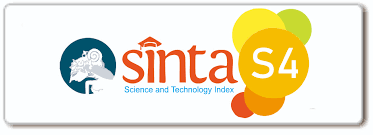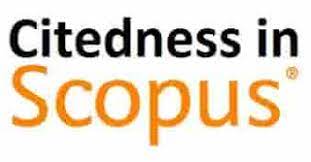Improving Quality Islamic Education for Today's Generation
DOI:
https://doi.org/10.59373/attadzkir.v2i2.42Keywords:
Learning Strategy, Muslim personality, Islamic education, LearnersAbstract
Islamic religious education is very important for the formation of one's personality. Guidance and direction are religious doctrines designed to make people believe in the existence of God and religion wholeheartedly, comply with religious orders in the form of worship, and have noble morals. Through studying Islamic religious education, the author hopes that someone can have good values in himself so that he can turn them into good behavior in everyday life. In addition, Islamic religious education can also enable a person not to do things that are not allowed in religion. The application of Islamic education is carried out by increasing piety to Allah SWT, and noble character is the embodiment of the faith that is believed by everyone. Therefore, combining happiness and piety in one person will avoid destructive, slanderous, and socially detrimental behavior, and is very dangerous for the unity and integrity of the nation in the future.
Downloads
References
Ajjawi, R., Tai, J., Huu Nghia, T. L., Boud, D., Johnson, L., & Patrick, C.-J. (2020). Aligning assessment with the needs of work-integrated learning: The challenges of authentic assessment in a complex context. Assessment & Evaluation in Higher Education, 45(2), 304–316. https://doi.org/10.1080/02602938.2019.1639613
Aliyyah, R. R., Ayuntina, D. R., Herawati, E. S. B., Suhardi, M., & Ismail. (2020). Using of Contextual Teaching and Learning Models to Improve Students Natural Science Learning Outcomes. Indonesian Journal of Applied Research (IJAR), 1(2), 65–79. https://doi.org/10.30997/ijar.v1i2.50
Al-Shanawani, H. M. (2019). Evaluation of Self-Learning Curriculum for Kindergarten Using Stufflebeam’s CIPP Model. SAGE Open, 9(1), 2158244018822380. https://doi.org/10.1177/2158244018822380
Alsup, J. (2019). Millennial Teacher Identity Discourses: Balancing Self and Other. Routledge. https://doi.org/10.4324/9781351036542
Alugar, R. (2021). Experiences of Millennial Teachers in the Academe: A Phenomenological Inquiry. International Journal of Education, Technology and Science, 1(4), 119–131.
Amelia, C., Aprilianto, A., Supriatna, D., Rusydi, I., & Zahari, N. E. (2022). The Principal’s Role as Education Supervisor in Improving Teacher Professionalism. Nidhomul Haq : Jurnal Manajemen Pendidikan Islam, 7(1), 144–155. https://doi.org/10.31538/ndh.v7i1.2075
Amzat, I. H. (Ed.). (2022). Supporting Modern Teaching in Islamic Schools: Pedagogical Best Practice for Teachers. London: Routledge. https://doi.org/10.4324/9781003193432
Arifin, I., Juharyanto, Mustiningsih, & Taufiq, A. (2018). Islamic Crash Course as a Leadership Strategy of School Principals in Strengthening School Organizational Culture. SAGE Open, 8(3), 2158244018799849. https://doi.org/10.1177/2158244018799849
Aslaksen, K., & Lorås, H. (2019). Matching Instruction with Modality-Specific Learning Style: Effects on Immediate Recall and Working Memory Performance. Education Sciences, 9(1), 32. https://doi.org/10.3390/educsci9010032
Aziz, S., Mahmood, M., & Rehman, Z. (2018). Implementation of CIPP Model for Quality Evaluation at School Level: A Case Study. Journal of Education and Educational Development, 5(1), 189–206.
Azmiyah, U., & Astutik, A. P. (2021). The Role of The Movement Teacher in Preparing Indonesia’s Excellent Generation. Nazhruna: Jurnal Pendidikan Islam, 4(2), 396–408. https://doi.org/10.31538/nzh.v4i2.1582
B, A. M., Kardini, N. L., Elshifa, A., Adiawaty, S., & Wijayanti, T. C. (2023). The Role of Quality Human Resources in Developing Missions of Future Universities in Indonesian Higher Education. Munaddhomah: Jurnal Manajemen Pendidikan Islam, 4(1), 49–59. https://doi.org/10.31538/munaddhomah.v4i1.342
Badawi, H. (2023). Learning from Japan: Advancing Education in the Arab and Islamic World through Creative Approaches. Nazhruna: Jurnal Pendidikan Islam, 6(2), 290–305. https://doi.org/10.31538/nzh.v6i2.3516
Bahri, S., & Arafah, N. (2020). Analisis Manajemen SDM Dalam Mengembangkan Strategi Pembelajaran Di Era New Normal. Tafkir: Interdisciplinary Journal of Islamic Education, 1(1), 20–40. https://doi.org/10.31538/tijie.v1i1.2
Barirohmah, B., & Subiyantoro, S. (2021). ISO 9001:2008 Quality Management System In Education. Nazhruna: Jurnal Pendidikan Islam, 4(2), 353–361. https://doi.org/10.31538/nzh.v4i2.1485
Bolatan, G. I. S., Gozlu, S., Alpkan, L., & Zaim, S. (2016). The Impact of Technology Transfer Performance on Total Quality Management and Quality Performance. Procedia - Social and Behavioral Sciences, 235, 746–755. https://doi.org/10.1016/j.sbspro.2016.11.076
Boyle, T., Petriwskyj, A., Grieshaber, S., & Jones, L. (2021). Coaching practices: Building teacher capability to enhance continuity in the early years. Teaching and Teacher Education, 108, 103515. https://doi.org/10.1016/j.tate.2021.103515
Bulturbayevich, M. B. (2021). Challenges of Digital Educational Environment. Academic Journal of Digital Economics and Stability, 4, 54–60.
Chatterjee, R., & Correia, A.-P. (2020). Online Students’ Attitudes Toward Collaborative Learning and Sense of Community. American Journal of Distance Education, 34(1), 53–68. https://doi.org/10.1080/08923647.2020.1703479
Chuang, T.-Y., Yeh, M. K.-C., & Lin, Y.-L. (2021). The Impact of Game Playing on Students’ Reasoning Ability, Varying According to Their Cognitive Style. Educational Technology & Society, 24(3), 29–43.
Dian, D., Indayanti, A. N., Fanani, A. I., & Nurhayati, E. (2023). Optimizing Islamic Religious Colleges In Facing The Era of Globalization. Tafkir: Interdisciplinary Journal of Islamic Education, 4(1), 58–77. https://doi.org/10.31538/tijie.v4i1.326
Dirani, K. M., Abadi, M., Alizadeh, A., Barhate, B., Garza, R. C., Gunasekara, N., … Majzun, Z. (2020). Leadership competencies and the essential role of human resource development in times of crisis: A response to Covid-19 pandemic. Human Resource Development International, 23(4), 380–394. https://doi.org/10.1080/13678868.2020.1780078
Ellis, R., & Hogard, E. (2018). Handbook of Quality Assurance for University Teaching. Routledge.
Hasanah, M. (2020). Rekrutmen Dan Seleksi Tenaga Pendidikan (Guru) Untuk Meningkatkan Kualitas Pendidikan di SMA Unggulan Berbasis Pesantren Amanatul Ummah Pacet. Al-Tarbawi Al-Haditsah: Jurnal Pendidikan Islam, 5(1). https://doi.org/10.24235/tarbawi.v5i1.6310
Hidayat, N. (2016). The Implementation of Character Education Model at Islamic Boarding School of Pabelan, Magelang, Central Java. Jurnal Pendidikan Islam, 5(2), 431–455. https://doi.org/10.14421/jpi.2016.52.431-455
Husnaini, M., Victorynie, I., & Amili, N. (2020). Model of religious character education: A case study in Al-Hilal Islamic Primary School Bekasi, Indonesia. Journal of Social Studies (JSS), 16(2), 103–120. https://doi.org/10.21831/jss.v16i2.34706
Indawati, N., Kartiko, A., Suyitno, S., Sirojuddin, A., & Fuad, Z. (2022). Improving The Religious Character of Educators Through Exemplary of Principles. AL-TANZIM: Jurnal Manajemen Pendidikan Islam, 6(3), 789–801. https://doi.org/10.33650/al-tanzim.v6i3.3691
Istiqomah, I. (2022). The Use of Business Model Canvas for The Organizational Development at the Al Hanif Integrated Islamic High School. Nidhomul Haq : Jurnal Manajemen Pendidikan Islam, 7(1), 103–115. https://doi.org/10.31538/ndh.v7i1.1945
Jumiati, J., & Kartiko, A. (2022). Pengaruh Self Efficacy dan Locus of Control Terhadap Kinerja Guru. Academicus: Journal of Teaching and Learning, 1(1), 32–44.
Khare, V., Khare, C. J., Nema, S., & Baredar, P. (2023). Chapter 7—Inventory and total quality management of solar energy system. In V. Khare, C. Khare, S. Nema, & P. Baredar (Eds.), Decision Science and Operations Management of Solar Energy Systems (pp. 235–272). Academic Press. https://doi.org/10.1016/B978-0-323-85761-1.00001-9
Majid, A. (2004). Pendidikan agama Islam berbasis kompetensi: Konsep dan implementasi kurikulum 2004. Remaja Rosdakarya.
Mäkinen, M., Linden, J., Annala, J., & Wiseman, A. (2018). Millennial generation preservice teachers inspiring the design of teacher education. European Journal of Teacher Education, 41(3), 343–359. https://doi.org/10.1080/02619768.2018.1448776
Mpungose, C. B., & Khoza, S. B. (2022). Postgraduate Students’ Experiences on the Use of Moodle and Canvas Learning Management System. Technology, Knowledge and Learning, 27(1), 1–16. https://doi.org/10.1007/s10758-020-09475-1
Rahayu, D. C., Hamid, A., Salehuddin, M., & Wahyudi, W. E. (2020). Development Of e Module Based Blended Learning On Hadith Material About Intention In Madrasah Ibtidaiyah: AL MURABBI, 6(1), 58–70. https://doi.org/10.35891/amb.v6i1.2434
Rouzi, K. S., Afifah, N., Hendrianto, C., & Desmita, D. (2020). Establishing an Islamic Learning Habituation Through the Prophets’ Parenting Styles in the New Normal Era. International Journal of Islamic Educational Psychology, 1(2), 101–111. https://doi.org/10.18196/ijiep.v1i2.9638
Rustiana, D., & Ma`arif, M. A. (2022). Manajemen Program Unggulan Tahfidz Qur’an dalam Meningkatkan Kualitas Hafalan Al-Qur’an Siswa. Kharisma: Jurnal Administrasi Dan Manajemen Pendidikan, 1(1), 12–24.
Supena, I., Darmuki, A., & Hariyadi, A. (2021). The Influence of 4C (Constructive, Critical, Creativity, Collaborative) Learning Model on Students’ Learning Outcomes. International Journal of Instruction, 14(3), 873–892.
Tabroni, I., Putra, D. D., Adawiah, N., & Rosmiati. (2022). Forming Character With Morals Prophet Muhammad Saw. East Asian Journal of Multidisciplinary Research, 1(1), 41–48.
Tang, S. Y. F., Wong, A. K. Y., Li, D. D. Y., & Cheng, M. M. H. (2020). Millennial generation preservice teachers’ intrinsic motivation to become a teacher, professional learning and professional competence. Teaching and Teacher Education, 96, 103180. https://doi.org/10.1016/j.tate.2020.103180
Uhbiyati, N. (1999). Ilmu Pendidikan Islam (2nd ed.). Bandung: Pustaka Setia.
Widjaja, G., & Aslan, A. (2022). Blended Learning Method in The View of Learning and Teaching Strategy in Geography Study Programs in Higher Education. Nazhruna: Jurnal Pendidikan Islam, 5(1), 22–36. https://doi.org/10.31538/nzh.v5i1.1852
Downloads
Published
How to Cite
Issue
Section
License
Copyright (c) 2023 Muhammad Abu Bakar, Khidriyah Amimatul Umroh, Fatima Hameed

This work is licensed under a Creative Commons Attribution-ShareAlike 4.0 International License.

At-Tadzkir: Islamic Education Journal by Perkumpulan Dosen Tarbiyah Islam Indonesia is licensed under a Creative Commons Attribution-ShareAlike 4.0 International License.
Based on a work at http://at-tadzkir.pdtii.org/index.php/tadzkir/index.








